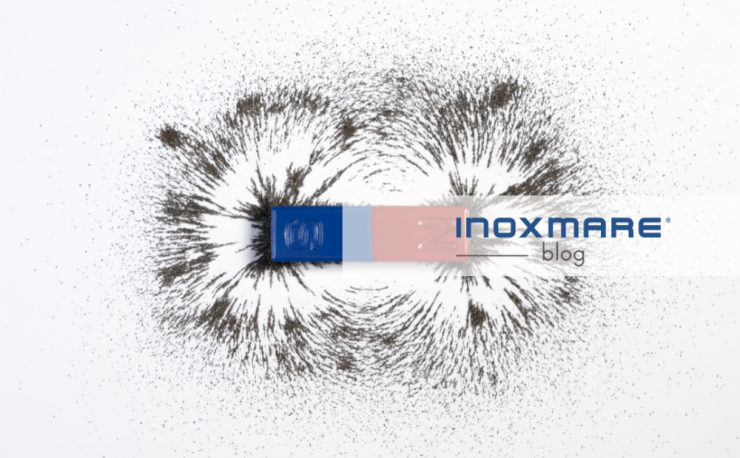
What is the magnetic permeability of materials? It refers to their ability to be attracted by a permanent magnet or to be influenced by a magnetic field.
What are ‘magnetic’ steels?
Which steels are classified as ‘magnetic’?
- Ferritic stainless steels
- Martensitic stainless steels
- Duplex steels
- Non austenitic steels.
Why are they identified in this way? These types of steels show a strong response (or pulling) to a magnetic field (such as a portable magnet).
Magnetism: material processing.
Austenitic stainless steels are classified as non-magnetic. The cold working process during the manufacture of fasteners can induce some residual magnetism, which, for example, can be lowered by a specific heat treatment process.
Low permeability applications: which steels to use?
For some applications it is necessary to use a stainless steel that has a very low permeability (the limit tends to 1.0 where the magnetic response of the material is the same as ‘free space’ or full vacuum). Austenitic stainless steels with a high austenitic stability are the most suitable for low permeability applications. This is precisely because they have low permeability:
- both in annealed conditions
- and cold conditions.
Any examples? Suitable for such applications are
- steels containing nitrogen (e.g. 1.4311/A2L and 1.4406/A4L)
- types with a high nickel content (e.g. 1.4845/AISI10S).
What if specific non-magnetic properties are required? It is necessary to seek the advice of a stainless steel materials expert before determining the specifications and the agreement between buyer and supplier established at the time of ordering.
Visit our website and discover how easy it is for businesses to buy our stainless steel fasteners online.
Want to read more articles? Continue here.